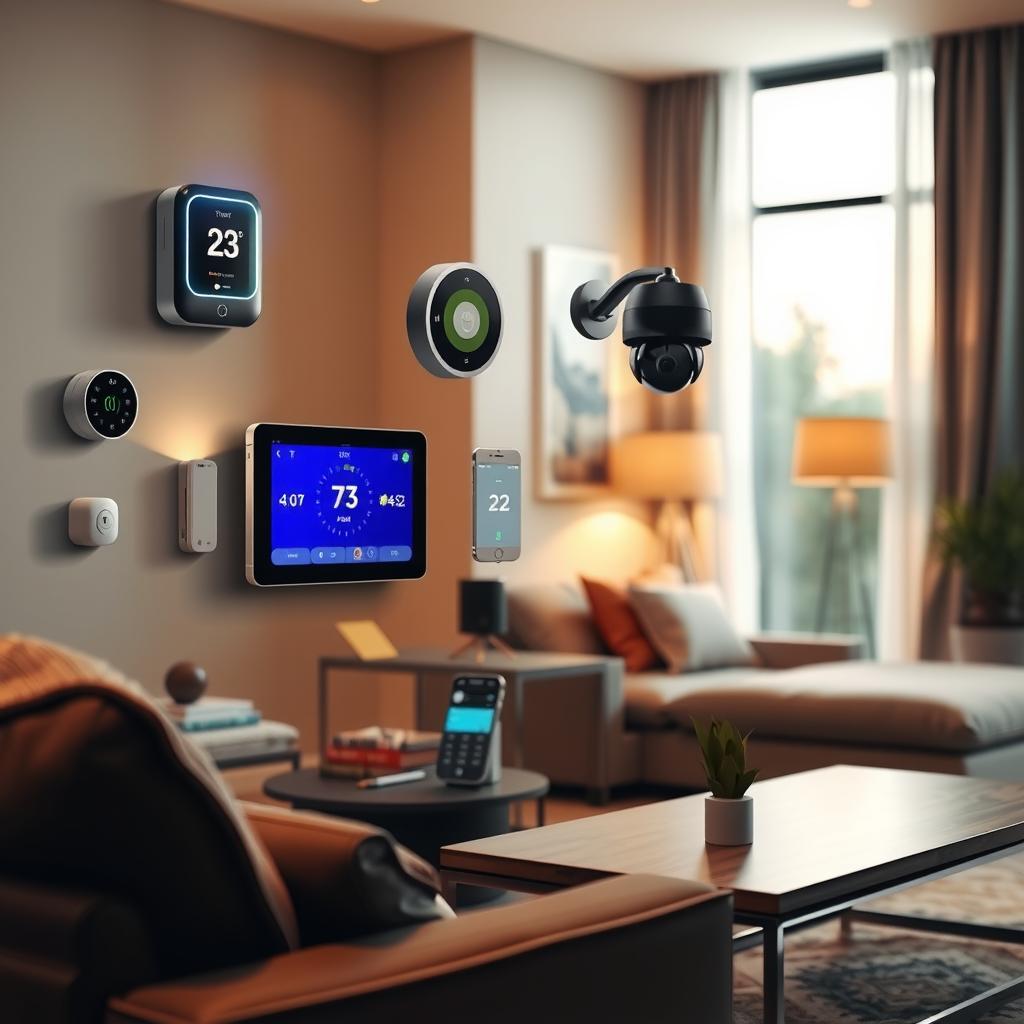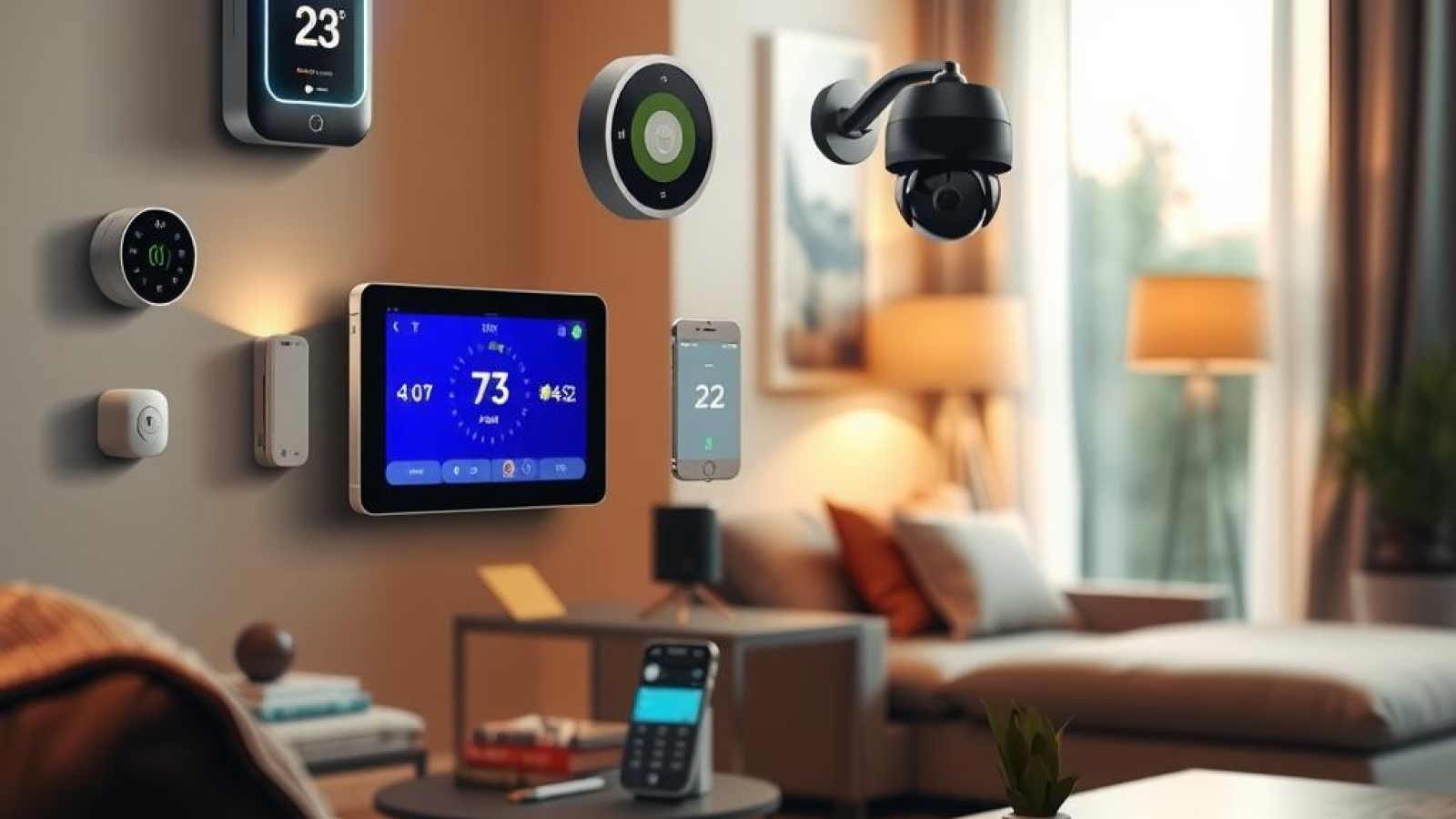In an era where home automation systems are becoming increasingly prevalent, many homeowners face a common dilemma: how to manage the vast amounts of data generated by their smart devices. With every gadget—from smart thermostats to security cameras—actively collecting and transmitting information, the challenge of effectively managing this data storage becomes paramount. Poorly optimized data storage solutions can lead not only to sluggish system performance but also potential security vulnerabilities, all while consuming unnecessary energy. This blog post delves into the critical importance of optimizing data storage for home automation systems, offering insights that can transform your experience with these innovative technologies.
The core value of efficient data management in a smart home lies in its ability to enhance functionality and streamline operations. By implementing effective strategies for optimizing storage, homeowners can enjoy seamless integration between devices while maximizing both speed and responsiveness. Furthermore, addressing these issues allows users to harness their home automation solutions fully; whether it’s adjusting lighting based on occupancy or remotely monitoring security feeds from anywhere in the world, every action hinges on reliable access to well-managed data.
Readers will discover practical steps they can take toward improving their own home automation setups as we explore various methods for creating more efficient storage environments tailored specifically for modern needs. From leveraging cloud services designed explicitly for smart homes to employing local servers that allow granular control over device interactions, there are numerous avenues available for enhancing performance without sacrificing usability or security.
As technology continues evolving at a rapid pace, ensuring that one’s system remains agile is essential not just for convenience but also for future-proofing investments in new gadgets and integrations. Join us as we unpack actionable tips and tricks aimed at boosting your home’s efficiency through intelligent data storage optimization.

Key Insights:
- Effective Data Management: Streamlining Home Automation Systems The importance of data management in the context of home automation cannot be overstated. With a multitude of devices generating significant amounts of data, it becomes essential to adopt strategies that allow for efficient handling and storage. By focusing on optimizing how information is organized and accessed, users can enhance overall system performance while ensuring their smart home systems operate seamlessly.
- Enhanced Storage Solutions: Leveraging Advanced Technologies To meet the growing demands for efficient storage, homeowners can turn to innovative technologies designed specifically for smart home systems. These advanced products not only facilitate better organization but also improve data retrieval processes. By integrating such solutions into their setups, individuals will notice a marked improvement in both functionality and speed, contributing positively to their home automation experience.
- Energy Efficiency through Optimized Practices: A Sustainable Approach One key aspect often overlooked in the realm of automation solutions is energy efficiency. As homes become smarter, managing energy consumption becomes vital alongside effective data handling. Techniques aimed at optimizing storage capabilities not only boost system performance but also play a crucial role in reducing energy usage across various devices. This dual focus ensures that users enjoy an eco-friendly approach while maximizing the potential of their smart home environments.

The Evolution of Smart Home Technology
Understanding the Necessity of Data Storage
The rapid integration of smart home technology into everyday living has significantly transformed how households operate. With devices such as smart thermostats, security cameras, and lighting systems becoming commonplace, data storage emerges as a cornerstone in ensuring these systems function optimally. As homes evolve into interconnected ecosystems through automation solutions, the need for robust data management practices becomes increasingly apparent. Efficient storage not only safeguards critical information but also enhances the performance and energy efficiency of each device within a smart home system.
In this context, data storage plays an essential role by collecting and maintaining vast amounts of information generated by various devices. This includes user preferences, real-time usage statistics, and sensor readings that guide automated actions—such as adjusting room temperatures or managing power consumption based on occupancy patterns. For instance, when integrated properly with an efficient storage system, these devices can learn from past behaviors to anticipate future needs better; thus contributing to enhanced comfort while minimizing energy waste.
Moreover, effective data storage solutions optimize overall system performance by enabling quick access to relevant data whenever required. Imagine a security camera that analyzes footage locally rather than relying on cloud services; it can process alerts faster without latency issues associated with internet connectivity interruptions—ensuring timely responses to potential threats. Furthermore, local data processing reduces dependency on bandwidth while still allowing homeowners access to their stored footage remotely when needed.
As users increasingly adopt more sophisticated automation technologies in their homes—ranging from voice-controlled assistants to intelligent irrigation systems—the demand for scalable and reliable data storage options will continue to rise. Companies developing smart home systems must prioritize innovative approaches toward optimizing storage capacities without sacrificing accessibility or security measures designed to protect personal information against unauthorized access.
Additionally, advancements in cloud computing have revolutionized how homeowners store and manage their data efficiently across multiple platforms seamlessly linked together via Internet-of-Things (IoT) connections. In this scenario where interconnectivity reigns supreme among various gadgets—from refrigerators alerting owners about low supplies down the street—to alarm clocks integrating weather updates into morning routines—the synergy created ensures optimal harmony between convenience-driven automation solutions while maintaining high standards concerning both privacy protection protocols alongside sustainability efforts aimed at lowering environmental impacts associated therein.
In summary, although many may overlook its significance amidst flashy gadgetry available today—the necessity for proficiently implemented data management strategies remains undeniable within modern-day residences leveraging cutting-edge technological innovations capable of enhancing lifestyle quality tenfold! Therefore investing thoughtfully in viable alternatives addressing those challenges surrounding effective use cases pertaining specifically towards improving overall functionality achieved through comprehensive knowledge gained via well-executed analytics derived directly from collected datasets will ultimately yield favorable outcomes benefiting households everywhere striving toward sustainable living practices combined harmoniously alongside delightful experiences brought forth through advanced capabilities afforded uniquely modern conveniences inherent amongst evolving trends shaping our very notions regarding domestic life itself!
Strategies for Efficient Data Management
Enhancing Your Smart Home System Through Effective Data Handling
In today’s rapidly evolving landscape of smart home systems, efficient data management is paramount. As households increasingly incorporate various automation solutions, the ability to handle large volumes of data seamlessly becomes crucial for optimal system performance. To achieve this, one must consider both hardware and software aspects that can significantly enhance data handling capabilities. Proper data storage solutions are essential in ensuring that devices operate without glitches or interruptions.
Selecting the right hardware is a foundational step in optimizing your home automation setup. Devices equipped with advanced processing units and ample memory are more capable of managing extensive data flows from multiple sensors and appliances. For instance, routers designed specifically for smart homes can support numerous connections simultaneously while providing robust security features to protect against unauthorized access. These advancements not only boost system performance but also contribute to overall energy efficiency by reducing downtime during operations.
On the software side, utilizing platforms that offer efficient data management tools can further streamline operations within your smart home ecosystem. Cloud-based services have gained popularity as they provide scalable storage options tailored to individual needs; users can expand their capacity as their requirements grow without significant upfront investments in physical infrastructure. Moreover, these platforms often come with built-in analytics capabilities that help homeowners monitor usage patterns and optimize storage effectively, thereby enhancing decision-making regarding energy consumption and device interactions.
It is important for users to pay attention to how different devices communicate within their network—protocols such as Zigbee or Z-Wave facilitate seamless integration allowing disparate devices from various manufacturers to work harmoniously together. This interoperability ensures smooth operation across all components of a smart home system while maintaining an organized flow of information critical for effective automation processes.
Furthermore, regular updates on both firmware and software applications play a vital role in maintaining system integrity over time. By keeping all elements up-to-date, homeowners ensure compatibility among devices while benefiting from enhancements made by manufacturers aimed at improving functionality or addressing potential vulnerabilities in existing setups.
Ultimately, implementing these strategies not only lays the groundwork for better automation solutions but also fosters a more intuitive user experience where technology adapts fluidly around daily life activities rather than imposing rigid operational frameworks on them. A well-planned approach towards selecting suitable hardware combined with intelligent software choices ultimately leads toward creating a cohesive environment where convenience meets reliability through effective data handling capabilities.
The Future of Home Automation
Transforming Living Spaces through Innovative Technologies
The landscape of home automation is on the brink of a revolution, driven by advanced technologies that enhance data management and optimize storage solutions. With an increasing reliance on smart home systems, households are becoming more interconnected than ever before. These innovative products not only facilitate seamless communication among devices but also ensure that system performance is maximized while maintaining energy efficiency. For instance, state-of-the-art sensors can monitor household activities in real-time, allowing homeowners to make informed decisions about their energy consumption and resource allocation. By integrating artificial intelligence into these systems, data collected from various sources can be analyzed to provide personalized automation solutions tailored to the unique needs of each family member.
Efficiency Redefined through Smart Innovations
Enhancing Daily Life with Intelligent Design
As society progresses toward smarter living environments, the emphasis on efficient storage and effective data management becomes paramount. New technologies are emerging that allow for remote access and control over appliances, lighting, and security systems via mobile applications or voice commands. This level of automation not only simplifies daily tasks but also significantly reduces the time spent managing household operations—creating a more enjoyable living experience overall. Furthermore, these innovations often come equipped with predictive analytics capabilities; they learn user preferences over time to anticipate needs proactively rather than reactively—a feature set to redefine convenience in modern homes.
Sustainable Living through Advanced Data Solutions
Bridging Comfort with Environmental Responsibility
In addition to enhancing comfort levels within homes, future trends in home automation focus heavily on promoting sustainability through optimized resource usage. Smart thermostats can adjust heating or cooling based on occupancy patterns detected by motion sensors—ultimately leading to reduced energy bills while contributing positively towards environmental conservation efforts. Moreover, integration with renewable energy sources like solar panels further underscores this commitment; intelligent algorithms manage when excess power should be stored versus when it should be utilized immediately based on real-time demand analysis—ensuring efficient resource allocation without compromising comfort or convenience.
The Path Ahead: A Harmonious Integration of Technology
The Vision for Tomorrow’s Automated Homes
Looking forward into an era characterized by rapid technological advancements reveals a vision where every aspect of life at home becomes harmoniously integrated within sophisticated ecosystems designed for optimal functionality and ease-of-use. As developers continue refining their offerings around home automation platforms featuring enhanced connectivity options (such as 5G networks), users will witness unprecedented improvements regarding how data flows between devices seamlessly throughout their living spaces—from kitchen appliances coordinating meal prep schedules down to security cameras ensuring peace-of-mind monitoring—all operating under streamlined protocols focused explicitly upon maximizing both efficiency & effectiveness across all fronts imaginable! Such promising developments signal exciting times ahead indeed!
Frequently Asked Questions:
Q: How can I improve the performance of my smart home systems through better data storage management?
A: Improving the performance of smart home systems largely hinges on effective data management. By selecting hardware that supports high-volume data transactions, homeowners can enhance their system’s ability to process information quickly. Additionally, using optimized software solutions that prioritize essential functionalities plays a significant role in ensuring seamless operation, thereby directly contributing to an overall boost in system performance.
Q: What are some strategies for optimizing data storage in home automation setups?
A: There are several strategies for optimizing data storage within home automation setups. Implementing cloud-based solutions can offer scalable options for managing large volumes of data without compromising local resources. Furthermore, regularly assessing and organizing stored information ensures that only necessary data is retained, which helps streamline operations and improves overall efficiency. Utilizing advanced technologies specifically designed for these purposes can significantly aid users in achieving their goals regarding efficient storage.
Q: Is energy efficiency affected by how I manage my smart home’s data storage?
A: Yes, energy efficiency is closely tied to how one manages data storage. When devices operate with optimized configurations and streamlined access to relevant information, they consume less power while performing tasks effectively. This not only enhances the life span of devices but also contributes to lower energy bills over time. Adopting practices aimed at improving both efficient storage and functionality allows homeowners to enjoy smarter living spaces without excessive energy consumption.

Add a Comment